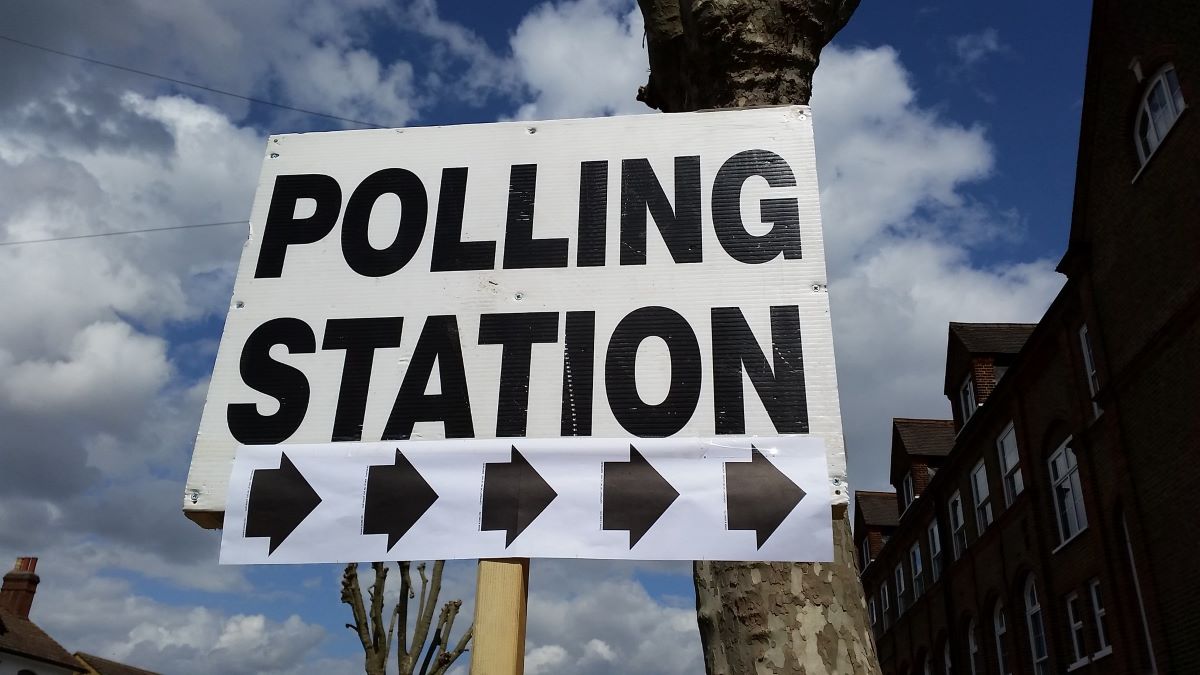FDA Reports Some Eye Makeup Can Cause Lead Poisoning
From mascaras to concealers, there are a number of different makeup products you probably use around your eyes every day. But there’s always a risk when it comes to putting anything close to such a sensitive area—and that means you’ll want to be extra careful about the products you’re using. With that in mind, it’s important to be aware of a new alert from the U.S. Food and Drug Administration (FDA) directed at anyone who uses cosmetics, warning that some eye makeup could cause lead poisoning. Read on to find out what the agency recommends you do to keep yourself safe.
READ THIS NEXT: The FDA Says These Bathroom Soaps Expose You to “Unnecessary Chemicals.”
You could be putting yourself in harm’s way if you’re not checking your makeup carefully.
In an Oct. 28 consumer update, the FDA said that one of the most important steps to preventing the risk of infection or injury from eye-area cosmetics is making sure you don’t use any products that contain unapproved color additives.
“In the U.S., the use of color additives is strictly regulated,” the agency explained. “Some color additives approved for cosmetic use in general are not approved for use in the areas near the eyes.”
According to the FDA, avoiding these additives requires that you look closely. “Cosmetic products sold on a retail basis to consumers, including eye-area cosmetics, are required to have an ingredient declaration on the label,” the agency said.
When you do look at the label, the FDA is warning you to keep an eye out for one specific ingredient that could cause lead poisoning.

There are a number of color additives the FDA has permitted for use in cosmetics—but kohl is not one of them.
“Say ‘no’ to kohl! Also known as al-kahl, kajal, or surma, kohl is used in some parts of the world for enhancing the appearance of the eyes,” the agency said in its consumer update.
According to the FDA, kohl has been banned for use in all cosmetic products in the U.S., including those for the eyes, because it has been linked to lead poisoning.
“Kohl is not an approved color additive for cosmetic use in the U.S. Check the ingredient statement to make sure that kohl is not present,” the agency advised.
But don’t be too worried if you see the word “kohl” on your product’s packaging if its not in the ingredient list. “Some eye-area cosmetics may be labeled with the word ‘kohl” only to indicate the shade, not because they contain true kohl,” the FDA explained.
For more health advice delivered straight to your inbox, sign up for our daily newsletter.

This isn’t the first time the FDA has put out an alert about the potential danger of kohl as a cosmetic ingredient.
“Using traditional eye cosmetics known as kohl, kajal, al-kahal, surma, tiro, tozali, or kwalli can put you at risk for lead poisoning,” the agency wrote in a 2020 post on its official FDA Cosmetics Twitter page. In an earlier 2022 alert from February, the FDA also said that many people are likely “unaware of the lead poisoning risk” from kohl.
According to the agency, kohl typically contains salts of heavy metals such as lead—and often in high amounts, too. “For example, lead, usually in the form of lead sulfide, sometimes accounts for more than half the weight of kohl products,” the FDA explained.
Based on the Federal Food, Drug, and Cosmetic Act—which was passed by Congress and is what the FDA uses to regulate cosmetics—lead for color additives used in cosmetics is typically limited to just 10 to 20 parts per million.
“Products containing kohl and similar ingredients have been linked to lead poisoning, especially among children, and are not allowed to be sold in the U.S.,” the FDA said. “Nevertheless, these products sometimes make their way into specialty markets in this country. FDA has an Import Alert advising import inspectors to be on the lookout for shipments of these products, and we’ve posted information to alert consumers to the dangers of using them.”

Lead poisoning is dangerous for both adults and children, but the risks of exposure to this element are “especially serious for children,” according to the FDA. The agency said that there are a number of health concerns that can arise from high levels of lead exposure, including anemia, kidney problems, and neurological damage that could involve seizures, coma, and even death.
“FDA is aware of instances of kohl-related lead poisoning in children in the U.S.,” the agency noted. “A number of studies have shown that children exposed to kohl and similar products have increased levels of lead in their blood.”
According to the FDA, children can be exposed to lead from kohl in various ways. For example, parents use kohl-based products on the eyes of infants and children in certain cultures, and some people rub kohl powder onto their newborn’s umbilical stump.
The agency stressed that it is important to keep kohl away from children due to reports linking it to lead poisoning. “Unlike some sources of exposure to lead, this one is easily avoidable by not using kohl and similar products on your children or yourself, and keeping them out of your home,” the FDA advised.
" Conservative News Daily does not always share or support the views and opinions expressed here; they are just those of the writer."






